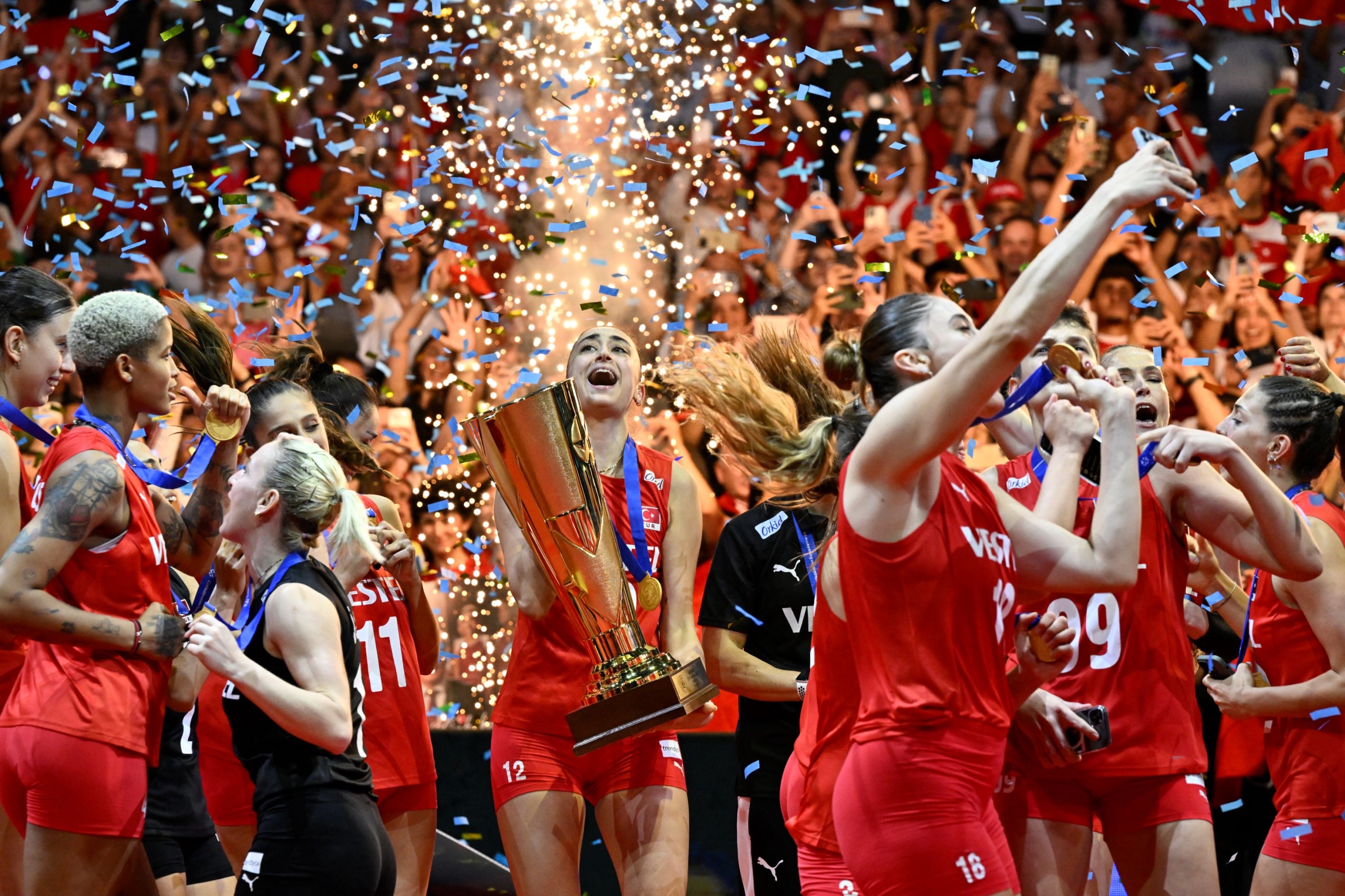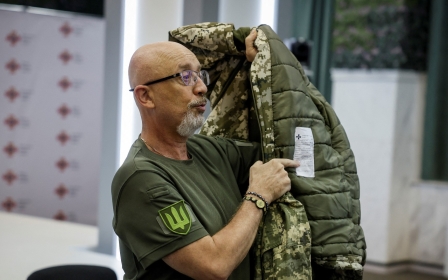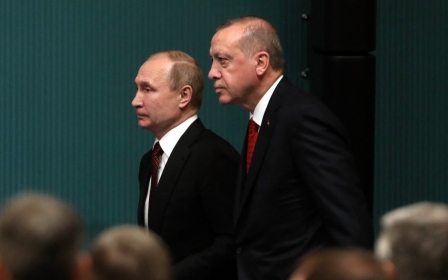Turkey: Women's volleyball victory overshadowed by row over LGBTQ+ player

The victory for Turkey in the Women's European Volleyball Championship on Sunday sparked off rapturous celebrations across the country, as the team - nicknamed the "Sultans of the Net" - beat Serbia at the final in Brussels.
However, the victory and much of the tournament were overshadowed by a row over the sexuality of one of the players, Ebrar Karakurt.
Shortly after winning, Karakurt - whose sexuality has been in the spotlight since posting pictures with her girlfriend in 2021 - posted a picture of her hugging a teammate on social media.
"This isn't the first final we've played, nor the first psychological warfare we've had," she wrote.
The "psychological warfare" is an apparent reference to the widespread criticism and homophobic abuse thrown at her by conservative politicians and journalists in Turkey over the course of the tournament.
New MEE newsletter: Jerusalem Dispatch
Sign up to get the latest insights and analysis on Israel-Palestine, alongside Turkey Unpacked and other MEE newsletters
Although President Recep Tayyip Erdogan tweeted his congratulations to the team, who he said "make us all proud", a number of his allies reacted rather differently.
Former mayor of Ankara Melih Gokcek, who had previously called for Karakurt to be kicked off the national team, said despite the team's victory on Sunday he would not take a "single step back" on his criticism of her.
"The leftovers of the Tanzimat who spoke against Sultan Abdulhamid should not have a place on the national team," he said, referencing the 19th century reforms that aimed to modernise the Ottoman Empire.
Theologian Ihsan Senocak, known for his closeness to the ruling Justice and Development Party (AKP), denounced the victory as a "disgrace", while popular cleric Cubbeli Ahmet questioned why the AKP had yet to ban homosexuality in the country.
And while the victory was splashed all over opposition media outlets, it was noticeably absent or downplayed on pro-government outlets such as Yeni Safak, whose journalists had previously accused Karakurt of trying to "impose her sexual preference on society" through her team's promotional material.
Another rightwing outlet, Yeni Akit, described Karakurt as a "gay deviant" in its reporting and focused on her alleged attempts to promote her sexuality. The pro-government newspaper previously branded her a "national shame" in one of its articles.
Part of the controversy also appears to have stemmed from a picture posted by Karakurt over the weekend in which she was shown holding a placard with the phrase “Cut the crap, Abdulhamid”, which she posted in response to attacks on her sexuality.
Translation: This isn't the first final we've played, nor the first psychological warfare we've had
Abdulhamid II was one of the last Ottoman sultans and is venerated by many conservative religious Turks, who interpreted the social media post as an attack on the ruler.
There was further outcry after it was announced that the Istanbul governorship - an unelected, government-appointed body - would not allow the elected Istanbul Metropolitan Municipality to show the final on a big screen in Taksim Square.
Although the governorship said that no such events had been allowed in the central district since 2012, many interpreted it as a further attempt to downplay the team's success.
'The homophobes and conservatives are trying their best to marginalize LGBTQ+ people and free women in general - it doesn't work when we are together'
- Damla Umut Uzun, Kaos GL
When the AKP mayor of Beyoglu, Haydar Ali Yildiz, announced on social media that the match would be broadcast in Kizilay Square, he tweeted out a poster that did not feature Karakurt on it.
He later deleted the image following a backlash and posted another one featuring Karakurt.
Damla Umut Uzun, a campaigner with the Turkish LGBTQ+ rights organisation Kaos GL, told Middle East Eye that right-wing campaigners and politicians had targeted Karakurt despite her relative quiet on her sexual orientation, which did not extend really beyond pictures of her with her girlfriend on social media.
"On the other hand, secular segments of society and of course feminist and the LGBTQ+ movement support [the team], stand with them on social media," Uzun said.
"The homophobes and conservatives are trying their best to marginalize LGBTQ+ people and free women in general - it doesn't work when we are together."
Middle East Eye delivers independent and unrivalled coverage and analysis of the Middle East, North Africa and beyond. To learn more about republishing this content and the associated fees, please fill out this form. More about MEE can be found here.




